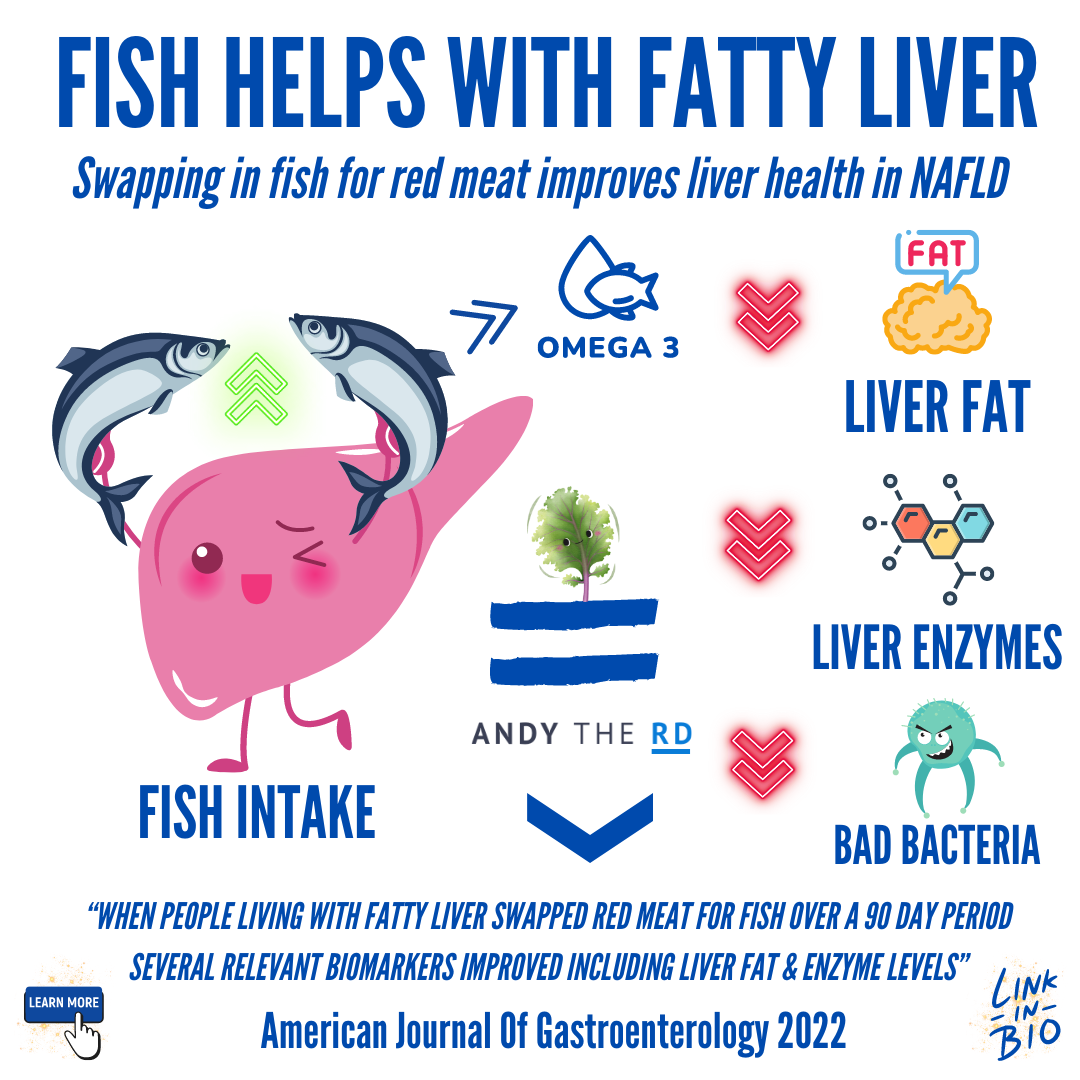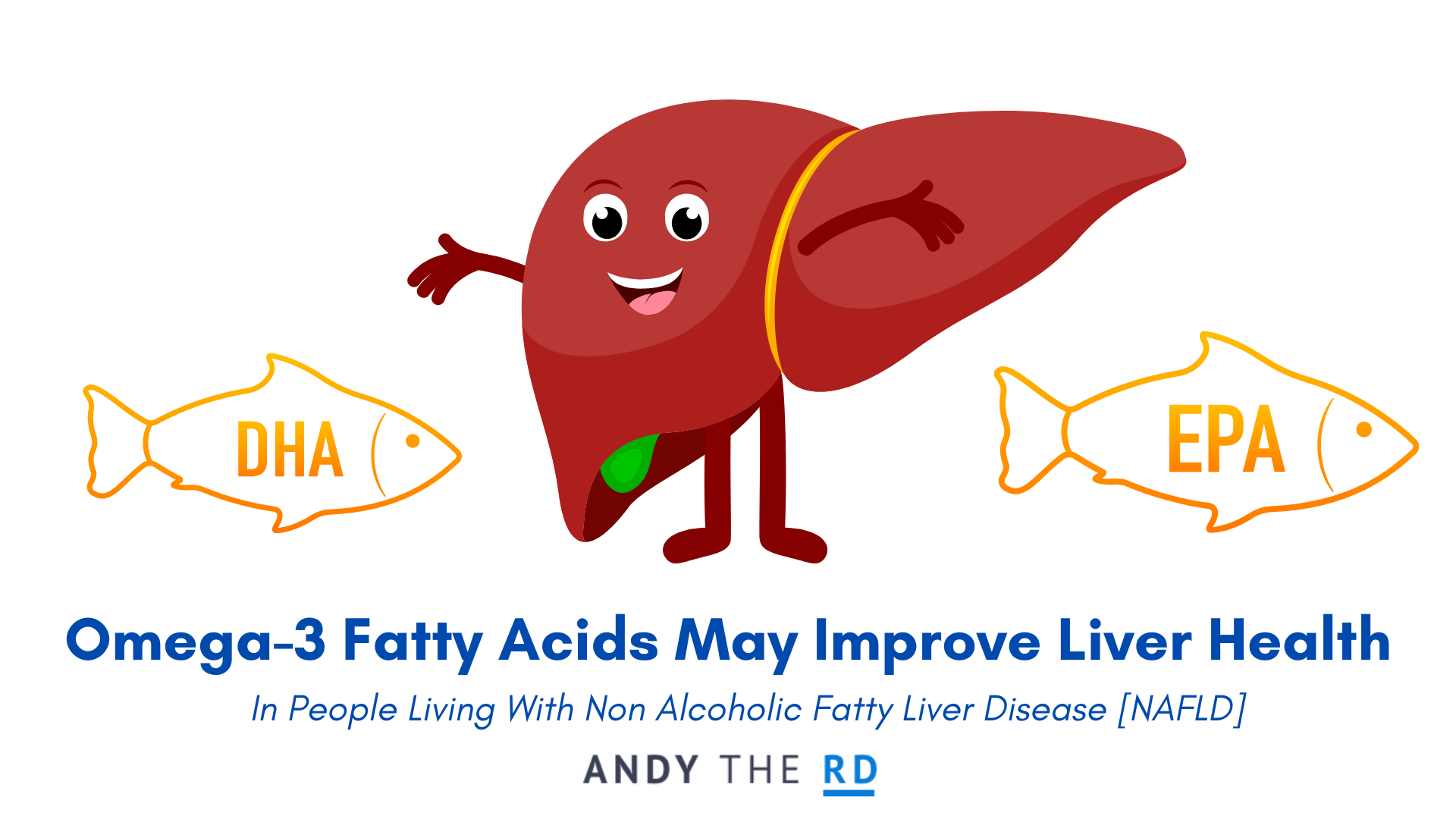Non-Alcoholic Fatty Liver Disease, NAFLD, is the most common liver ailment globally and affects nearly a third of the world’s population.
I’ve spent an incredible amount of time over the last 18 months staying current on the role that nutrition has to play in either prevention or managing the condition.
During that period, around this time last year, I also published a book on the subject – The Essential Diet For Fatty Liver Disease.
Since then, I’ve worked with a significant number of clients bringing this knowledge to life and improving their liver health and functionality as a result.
Which brings me to the subject matter of today’s post – the role of omega-3 fatty acids in managing fatty liver disease.
Let’s take a closer look.
Omega-3s & Fatty Liver Disease – Intro
Fatty Liver Disease is not a straightforward condition that can be explained by inflammation alone, but inflammation is considered a contributing factor that can contribute to liver damage and scarring over time.
It is also true that individuals following a more anti-inflammatory style of eating tend to have a lower risk of NAFLD over time.
On the most fundamental level, omega-3 fatty acids are known to be potently anti-inflammatory which immediately generates a level of curiosity around the role that might play.
But their interaction with liver health is much deeper than that.
Emerging evidence suggests that as the severity of fatty liver disease increases, the levels of long chain omega-3 fatty acids DHA and EPA in the liver tend to decrease.
This is a problem because scientists are increasingly aware of the fact that these long chain omega-3s play an important role in regulating the function of the liver at a cellular level.
The problem is also compounded by the fact that EPA and DHA are found in very few foods – namely salmon, sardines, herring, trout and mackerel.
The seafood consumption rate in Canada, by the way, is only about 17%.
Omega-3s & Fatty Liver Disease – The Evidence
Several controlled human intervention trials looking at the role of omega-3 supplementation on liver health indicators have been conducted.
Even when we consider otherwise healthy people, recent evidence demonstrates that those who supplement omega-3s have a lower risk of multiple liver conditions – including fatty liver.
This is likely because omega-3 fatty acids improve both insulin sensitivity and fat metabolism, the two factors most responsible for fat ending up in the liver in the first place.
But what about for those who already have NAFLD?
In 2018, the Nutrition Reviews journal conducted a systematic review and meta-analysis which included 18 such studies and determined that DHA/EPA supplementation has demonstrated potential to lower:
- Liver enzyme levels
- Triglycerides
- Liver fat storage
The optimal dose required to achieve this effect, as per this paper, was 3 grams per day.
That being said, a separate meta-analysis out of Clinical Nutrition ESPEN determined that the effectiveness of omega-3 supplementation scales based on dose with each additional 1 gram per day between 0-4 grams per day potentially offering an additional benefit.
This means that even one gram per day, if your current intake is zero, could be beneficial.
It must be noted that despite growing evidence in this area, the research is not fully conclusive and whether or not omega-3 supplementation, and the particular dose, is right for you is a decision to be made in conjunction with your healthcare provider.

How Much EPA/DHA Is In Fish?
The Mediterranean Diet, as I’ve written on previously, is considered the best dietary strategy to reduce insulin resistance and liver fat storage in NAFLD.
As a foundational principle, the Med Diet expects a fish intake of around ~500 grams per week or 75 grams per day.
A 75 gram serving of fatty fish like salmon, sardines, trout, herring and mackerel provide between .75 grams to 1.75 grams of EPA/DHA.
A 2022 study out of the American Journal Of Gastroenterology found compared to people eating protein 50/50 from fish and red meat sources, that a fish protein only diet over 3 months reduced liver fat and enzyme levels while improving participants gut microbiome profile.
As I’ve written about previously, omega-3 fatty acids are known to improve microbiome diversity and fight back against bacterial imbalances which can worsen fatty liver disease.
In the study above, the fish-focused group increased their fish intake by 250 grams ( to around ~350 grams) and experienced a nearly 5% decrease in liver fat accumulation.
The mixed-protein group increased their daily fish intake by ~60 grams ( to ~150 grams) and still experienced a nearly 2% decrease in liver fat accumulation.
The mixed-protein group consumed red meat at a similar daily amount to fish, whereas the fish-focused group consumed no red meat.
This study demonstrates that even modest increases in fish intake, without giving up red meat, can positively influence liver fat levels – although more fish is clearly even better!
Plant-Based Omega-3
The long-chain omega-3 fatty acids EPA/DHA are available in algae-based supplements for those who strictly adhere to vegan or vegetarian dietary principles.
A different type of omega-3, ALA, has not been as well studied in the world of fatty liver but happens to be found in a few extremely nutritious foods.
These include flax, chia and hempseed as well as walnuts and soy-based foods like edamame and tofu.
Each of the foods listed above also contain a host of other unique compounds such as the liver-friendly lignans in flax and the flavonoid family isoflavone compounds in soy.
They also all fit and contribute to a style of eating that reduces triglycerides, inflammation and insulin resistance and are exceptional choices to include in a liver friendly diet.
I Can Help You Fat Back Against Fatty Liver
Understanding the protective role of omega-3 fatty acids is only one of a number of nutrition lessons you need to be aware of to help fight back against fatty liver disease.
I’ve helped a significant number of people bring science like this to life in their daily life with the goal of improving their liver health.
If customized nutrition guidance combined with accountability and support sound like what you need, reach out to discuss working with me 1-on-1.
Prefer a more online course and community based setting?
Click the graphic below to learn more about Fatty Liver Fighters.
Until next time,
Andy De Santis RD MPH




